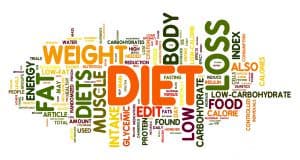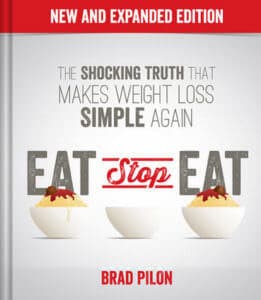 A Comprehensive and Informative Guide to Intermittent Fasting
A Comprehensive and Informative Guide to Intermittent Fasting
If you have ever heard of intermittent fasting before, you may be interested in how it works, the benefits it offers, any side effects it may cause, and the dietary guidelines behind this dieting concept.
For many, the idea of intermittent fasting may seem difficult to master or like a potentially unsafe activity that could cause complications in a person’s life.
While there are some potential downsides and side effects associated with intermittent fasting, they are only truly problematic if a person isn’t careful. That’s why it is important to understand as much as possible about this practice.
There are many interesting ideas that you need to fully grasp before you can consider yourself a beginner, let alone a master, at fasting.
That’s why we have compiled this comprehensive list of information about this practice. By the time you are done reading this article, you will have full comprehension of the nature of fasting, its benefits, and how to do it properly.
More importantly, you will also have an insight into problems that can occur with this practice and how to avoid them.
What is Intermittent Fasting?
 Intermittent fasting includes a variety of different meal methods that focus on cycling between periods of eating and not eating. Unlike total fasts, you will usually eat every day of the week.
Intermittent fasting includes a variety of different meal methods that focus on cycling between periods of eating and not eating. Unlike total fasts, you will usually eat every day of the week.
However, when you eat is severely restricted and scheduled on a rather strict pattern. Your calories are also decreased to a much lower level than normal.
There are many different ways that fasting is approached. For example, some people will follow the traditional method of not eating while the sun is up and having a small meal at sunset.
However, others may eat one large meal in the morning and go without food for the rest of the day. The pattern of this diet is typically up to the person pursuing it.
In some instances, a person may eat a regular diet on one day and then fast on the next. Or they may even alternate a week of normal eating with one of intermittent fasting. This variety of approaches makes intermittent fasting one of the most interesting and useful of all dieting cycles. However, the most common type of this fasting is likely one in which a person does not eat for 16 hours.
A Look at a Basic Approach
While we will discuss more types of intermittent fasting in a later section, it is worth understanding the most basic method to give you an early insight into how it works. The 16/8 method limits a person to an eight-hour eating window in which they can enjoy one or more meals of their choosing.
The foods you eat aren’t limited, though the calories in most diets of this type will be much smaller than normal.
After this eight-hour window, a person on a fast cannot eat for 16 hours. This period might seem like a challenging one to most people, and it may be unless it is approached reasonably.
For example, a person could use their eight-hour sleeping period as part of the intermittent fast. So they could stop eating four hours before bed, sleep, and then eat four hours after waking up.
It is also important to remember that liquids are not forbidden during your fasting window. However, they must be drinks without calories. So you can drink water, coffee, and tea during this period. In most intermittent fasting methods, you may be able to add a little milk to your coffee. That allowance will depend on the method used.
It is also probably a good idea to stay away from diet sodas or flavored waters during a fast.
While diet sodas typically have no calories, they do contain chemicals that may interfere with your fast. Even flavored water, which may have few to no calories, can prevent a problem during a fast. Your best bet here is to enjoy flavored or caloric drinks during your eating window and stick strictly to water, tea, and coffee during the fast.
[cp_modal display=”inline” id=”cp_id_962d5″][/cp_modal]
The History of Intermittent Fasting
 There’s a good chance that you’ve seen plenty of books and heard of a lot of diet plans that propose intermittent fasting as a new and revolutionary dietary trend. Every person who writes their intermittent fasting diet acts as if they just discovered this innovative method on their own and are presenting it to you as a gift after all their hard work. Nothing could be further from the truth.
There’s a good chance that you’ve seen plenty of books and heard of a lot of diet plans that propose intermittent fasting as a new and revolutionary dietary trend. Every person who writes their intermittent fasting diet acts as if they just discovered this innovative method on their own and are presenting it to you as a gift after all their hard work. Nothing could be further from the truth.
Fasting is a Common Human Behavior
Fasting is nothing new to the human race. Ever since the beginning of our history, people have had to fast for various reasons. For example, hunters and gatherers would find themselves fasting if their food supplies were low.
Carefully managing their food in this way and tolerating a lower level of calories was essential for the survival of many tribes and, in essence, the whole race. So fasting is something that the human body is more than capable of handling.
Interestingly, the body will also force a person to fast if they are sick from a mild or even severe disease. The reasons for this are instinctive. The body is trying to starve out the disease by limiting its intake of calories. Fasting behavior can also cause the body to do strange things, such as burn fat for energy and increase a person’s immune system.
It Has Cultural Significant
However, fasting would expand beyond a simple survival technique as people began developing religious beliefs. Just about every major religion includes some instances of fasting. For example, Catholicism includes fasting behaviors during the celebration of Lent.
These actions include limiting their intake of meat and otherwise restricting their calories.
In Buddhism, followers fast to help cleanse the mind and release the body from a need for regular food. The idea behind this behavior is to control the body’s negative urges and increase a person’s inner spiritual strength. Sometimes, Buddhists were able to turn their ability to fast into an incredible power. For example, think of the way that Gandhi was able to gain independence for India simply by leading his people with hunger strikes.
This information indicates that fasting is far from strange behavior or something that is dangerous or unacceptable to the body. In fact, intermittent fasting is something that can have many benefits for a person if it is handled properly.
Before discussing these benefits and why they occur, it is worth understanding a few individuals who have tried intermittent fasting in the past.
Those Who Have Tried Intermittent Fasting
Multiple celebrities and athletes have used intermittent fasting as a way to get into shape quickly and easily. To give you an idea of how widespread this practice has become, we will highlight a few here and give you a glimpse into their reasoning for the diet:
- Ben Affleck – Affleck has used intermittent fasting to get into better shape for action roles, such as “The Daredevil,” after gaining weight for other acting gigs.
- Hugh Jackman – Whenever Jackman plays Wolverine in one of the X-Men movies, he uses intermittent fasting to lose weight and get into better shape.
- Beyonce – This chart-topping artist uses intermittent fasting as a way to get a better body before going out on tour.
These are just a few of the celebrities who have used intermittent fasting in the past.
There are several reasons, beyond staying in shape, that they have used this dieting method. For example, a study by the University of Medicine and Dentistry in New Jersey found that it can help manage inflammation, improve immune responses, handle the growth of cancerous tumors, and even help a person decrease their obesity.
Even more surprisingly, it was shown to protect against many types of severe DNA damage caused by environmental contaminants. However, we are getting ahead of ourselves here a little bit. Let’s move on to discuss how intermittent fasting works. The next section below will give you an insight into the ways fasting will transform the way your body operates.
How Does Intermittent Fasting Work?
 Intermittent fasting works by placing your body into a unique fat-burning phase known as a ketogenic state.
Intermittent fasting works by placing your body into a unique fat-burning phase known as a ketogenic state.
Essentially, this state occurs if your body is very low in carbohydrates and cannot convert them into energy using your insulin. This state will force the body to turn to your stores of fat for energy. As a result, you will quickly burn fat and get leaner and healthier.
There are many types of ketogenic diets out there that focus on protein-heavy foods that are rich in fat. These diets require a limiting approach that makes it nearly impossible for you to eat foods that are rich in carbohydrates and sugar. However, intermittent fasting doesn’t have the same kind of restrictions because it uses the fast itself to limit your carbs.
This Increases Your Potential Food Options
With a fast of this type, you won’t be as limited in your possible food options as you are with a ketogenic diet. This approach offers you many benefits. First of all, you can eat foods that you enjoy without worrying about their fat or carbohydrate content. It also means that you can create a diet that is healthy and designed for your specific lifestyle.
However, that doesn’t mean you can eat a bag of potato chips and call it a day. You should still try to focus on healthy protein, complex carbohydrates, fruits, vegetables, and other healthy items. Try to limit your sugar intake to further boost your ketogenic state during your fast. You should also avoid overeating and junk food as a way of improving your diet even further.
How the Body Adapts
As you enter a fasting stage, your body will adapt by turning to your reserves of fat as a source of energy. Entering a ketogenic state will help increase your mental focus and provide you with higher levels of energy. As a result, it is often a better idea to exercise or train during your fasting period.
After about a week, your body will adapt to your new diet method and change your metabolism to suit its needs. As a result, you won’t feel as hungry during your fasting period and will feel happier and healthier. That is the amazing thing about the adaptable nature of the human body.
Does Research Support It?
Research supports fasting’s effectiveness as a dietary solution. For example, one study found that overweight adults with moderate asthma who followed an intermittent fasting diet were able to lose more weight than those who did not. Understanding the factors of this study is important for gauging its findings.
Those who followed intermittent fasting methods consumed just 20 percent of their normal calories on alternate days. They also experienced a weight loss of eight-percent of their starting body weight. This weight loss came over an eight-week period, indicating a loss of one-percent every week. However, these weren’t the only benefits those in this study experienced.
They also showed a decrease in inflammation and oxidative stress. For those without a medical degree, this means that negative symptoms of asthma were significantly reduced. In fact, everybody in this study who stuck with an intermittent fasting schedule reported an increased quality of life, improved overall health, and a stronger sense of well-being.
Another Study Examined
In a similar study, it was found that intermittent fasting and caloric restriction could help decrease the risk of breast cancer in overweight women. In this study, they found that a restricted diet helped these women lose weight, balance their insulin sensitivity, manage their risk for cardiovascular disease, decrease breast cancer risk, and manage diabetes symptoms.
The reasons for these benefits became evident during the study. The researchers found that fasting for up to 16 hours forced the body to burn fat stores for energy. As this fat was burned, ketones were released into the body. These items help improve the body’s ability to fight against various diseases. It also improves the brain’s functions, enhances the memory, and makes it easier to learn complicated processes.
There are many other studies that we could quote here, but we don’t want to bore you with excessive details.
Just know that almost every review that we read found that intermittent fasting was a healthy solution for a broad range of problems. While it is by no means a miracle cure for diseases and weight loss, it has more than proven itself to be an effective solution for many concerns. This fact applies in particular if you choose a type of intermittent fasting that works for your needs.
The Types of Intermittent Fasting
 To better understand intermittent fasting and its benefits, it is important to take a look at several different fasting methods.
To better understand intermittent fasting and its benefits, it is important to take a look at several different fasting methods.
We will take an extended look at each method here to give you an idea of what to expect from each. Beyond that, we will also touch on different guidelines for each that will help make each dietary approach a little easier for you.
Leangains
We suggest this particular intermittent fasting method for those who love going to the gym regularly and who want to lose body fat. It is designed as a muscle-building method that will improve your routine and make it more effective. Typically, it requires 14 fasting hours for women and 16 for men. During the feeding period, it is important to give yourself an appropriate amount of calories.
Your diet during your eating period will vary depending on your goal for the day. For example, if you are exercising that day, make sure to eat a high concentration of carbohydrates. Then, you should workout during your fasting period to increase your potential ketogenic process. During days that you don’t exercise, focus on fat to further boost your ketosis.
Benefits
What we like about this diet method is that you can eat whenever you want during your feeding period. You can eat one large meal, three small meals, or several tiny meals during the day. This approach makes Leangains a relatively simple diet to adjust to for most people.
Drawbacks
Unfortunately, you are pretty restricted in what you can eat when on this diet. For example, we already mentioned that eating carbs is important when working out and eating fat essential on off days. There are other strict guidelines to this diet that we don’t have room to explore here.
Eat Stop Eat
 Sticking to this particular diet can be a pretty difficult process for most people. Rather than the 16-hour period of fasting discussed in the Leangains diet, you will fast for 24 hours once or twice a week. This adjustment can be tricky for some people, but it does provide you with a decreased caloric intake that can be an essential way of losing fat and getting into better shape.
Sticking to this particular diet can be a pretty difficult process for most people. Rather than the 16-hour period of fasting discussed in the Leangains diet, you will fast for 24 hours once or twice a week. This adjustment can be tricky for some people, but it does provide you with a decreased caloric intake that can be an essential way of losing fat and getting into better shape.
That’s because you aren’t limited in what or when you eat during the remainder of the week. As a result, Eat Stop Eat is often an easier dietary adjustment for some people. Rather than having to fast every day, they only have to do so a few times a week. It also decreases your caloric intake for the week without upsetting your regular diet.
Benefits
There are no food restrictions on this diet. As a result, it is typically easier to adjust to this process. It is also very adaptable to the needs of many people. For example, you can place your fasting days anywhere you want during the week. As long as you finish these fasting days, the diet should work.
Drawbacks
Adjusting to not eating for a whole day may be a complicated process. It can cause headaches, fatigue, and other problems. Beyond that, it can also increase a person’s tendency to binge after finishing their fast. As a result, this diet typically requires a lot of focus and concentration to complete.
The Warrior Diet
People who are committed to intermittent fasting love The Warrior Diet. That’s because it is the most extreme and difficult to maintain of the diets on this list. A person following this intermittent fasting method will fast for 20 hours a day and eat one substantial meal at night. The idea here is to feed the body high-quality nutrients that help boost a person’s circadian rhythms.
Don’t let the 20-hour fasting period scare you away, though. It is possible to eat minimal amounts of raw fruits and veggies during this time. Some people also ingest one or two servings of protein and fruit juices. You will eat as few calories during this process as possible, though, and eat a majority of your calories during the four-hour eating period.
Benefits
The nice thing about this diet is that it allows a person to eat a few snacks during their fasting period. As a result, it is easier to get through this period without a struggle. People who stick to this diet also find that it increases their energy levels and is the most effective way to burn fat.
Drawbacks
The extreme nature of this diet makes it very hard to stick to for a long period. Only eating one large meal a day limits a person’s free time and can make it hard for them to spend time with others. Beyond these concerns, it is also tough to adjust to the extreme nature of this diet.
Fat Loss Forever
The main draw of this diet is that it combines all of the ideas of the intermittent fasting diets mentioned above and streamlines them into one plan. The highlights of this program include a cheat day during which you can eat anything you want. This benefit is counterbalanced by the fact that you also have a 36-hour fast period that can be hard to adjust to initially.
The rest of your days are broken down into a variety of different eating and fasting periods. Discussing all these periods here would take up too much room for this article. However, this method is an excellent choice for people who want the flexibility of a variety of different fasting periods and who can’t stick to the more rigid schedules offered by the other diets above.
Benefits
The intermittent fasting schedule makes of this diet is a great way to adjust to fasting. It also maximizes the benefits of your fasting periods and improves the effectiveness of your ketosis. We also like the fact that is has a cheat day because this helps make it easier for people to manage their fasting.
Drawbacks
The cheat day in this diet may tempt people into falling back into unhealthy eating habits. It can also be somewhat confusing to adjust to the changing fasting times required for this diet. While its various fasting times are excellent, those who want a consistent schedule will be confused.
The Up and Down Diet
Those who have a specific weight goal benefit the most from this particular diet. Rather than fasting for a set amount of hours during a day or week, you alternate high-calorie days with low-calorie days. High-calories days should be at a healthy level that provides you with enough energy for the day. Low-calorie days are one-fifth of your regular calorie intake and are often as low as 400-500 calories per day.
There are several reasons to try this particular diet. It simulates a fast without limiting your actual intake of food. It also provides a pretty simple schedule that just about anybody can understand. Often, people on this diet use a meal replacement shake to get all the vitamins and minerals they need on low-calorie days.
Benefits
The structure of this diet maximizes your potential for weight loss and is the best choice for those who primarily want to burn fat. It is also easy to understand and might be the easiest of all the diets on this list to adjust to when you’re starting out.
Drawbacks
A large number of people on this diet struggle to avoid binges on their high-calorie days. Falling off track here can make the whole diet to fail. Make sure to carefully plan your meals during the high-calorie days and stick to your low-calorie days to maximize this diet’s benefits.
OMAD Diet – Eating One Meal a Day
 Last, but not least, is this simple dietary concept. On the OMAD diet, you can eat one meal per day. Your meal should include all of your caloric intake. It is often wise to pair this diet with a supplement or a protein powder to ensure you get all the vitamins and minerals that you need to be healthy for the rest of the day.
Last, but not least, is this simple dietary concept. On the OMAD diet, you can eat one meal per day. Your meal should include all of your caloric intake. It is often wise to pair this diet with a supplement or a protein powder to ensure you get all the vitamins and minerals that you need to be healthy for the rest of the day.
During the rest of the day, you can’t eat any other foods. However, you can drink tea, coffee, and water. Coffee is often an excellent idea for this diet because it helps suppress your hunger urges. There are no other dietary restrictions to this intermittent fasting method. You can eat as much as you want and whatever you want during your one meal.
Benefits
There is no easier diet on our list to understand. Rather than trying to master tricky fasting cycles and balancing your dietary intake, you eat what you want once a day. While this doesn’t mean you should overeat, you can choose the schedule and the foods you want to meet your needs.
Drawbacks
While this diet is one of the easiest to understand on our list, it can also be the hardest to master. Adjusting to eating one substantial meal can throw many people for a loop and cause them to overeat. The lack of strict guidelines may also confuse people who need more guidance in this process.
What are the Health Benefits of Intermittent Fasting?
 There are many positive health benefits of intermittent fasting. Each of these benefits will be explored in depth below to give you a better insight into why this is such an excellent dietary choice for the right person. While there are drawbacks (which we’ll discuss later), these benefits outweigh them.
There are many positive health benefits of intermittent fasting. Each of these benefits will be explored in depth below to give you a better insight into why this is such an excellent dietary choice for the right person. While there are drawbacks (which we’ll discuss later), these benefits outweigh them.
Decreased Levels of Insulin
While insulin is an important chemical for your body, it can be very problematic for weight loss. Thankfully, intermittent fasting will decrease your insulin levels and improve your weight loss. This benefit occurs because ketosis increases your fat-burning skills exponentially.
Increased Human Growth Hormone
This beneficial hormone is essential for cell repairs and other positive processes in your body. Those who are on an intermittent fasting diet will have an increase of this hormone that can be as high as 500 percent. This increase helps your body recover more fully from damage.
Higher Levels of Muscle-Building Hormones
When your body goes through the routines of an intermittent fasting diet, it will start producing higher levels of muscle-building hormones. This increase occurs because your body is attempting to repair the potential damage that could occur during periods when little food is available.
Boosted Cellular Repair Process
Aging causes severe damage to your cells that requires specialized repair procedures to fix. Thankfully, intermittent fasting helps increase the effectiveness of these repair procedures. As a result, you can look younger for longer by following this type of diet.
Improved Weight Loss
Limiting your intake of food will obviously help you lose weight and higher levels of belly fat. However, intermittent fasting is particularly useful because it starts ketosis and focuses your weight loss specifically on weight loss. As a result, you will lose weight exponentially faster.
Reduced Levels of Free Radicals
Harmful elements known as free radicals enter your body every day. They cause stress on the body that can lead to quicker aging and severe chronic disease. However, intermittent fasting helps eliminate these items in your body and leads to an overall healthier lifestyle.
Improved Heart Health
Intermittent fasting helps improve many risk factors that can contribute to serious heart health issues. It can decrease your blood pressure, improve your cholesterol levels, balance your triglycerides, and avoid inflammation that can otherwise impact the health of your heart.
Helps in the Fight Against Cancer
Various studies have shown that intermittent fasting helps manage many symptoms of cancer. It can not only reduce the risk of serious cancer but even help fight against tumors. These benefits require further study before being completely confirmed, however.
What are the Side Effects of Intermittent Fasting?
There are several unfortunate side effects of intermittent fasting that need to be discussed before you try it out. Most of these are fairly simple to understand and shouldn’t scare you away from trying it. However, it is essential to know the full story before trying any dietary change.
Feeling Uncomfortable After Eating
A restricted diet like this can make a person feel fuller after eating a smaller amount of food. In fact, it can cause a person to feel bloated and unable to manage various health problems. While these symptoms can be difficult to control, they are typically easy to ignore.
Unhealthy Concentration on Fasting
Due to the often strict nature of the feeding and fasting periods in these types of diets, you may become obsessed with following them. People often spend their whole day concentrating on their diet rather than on important tasks. Make sure that you don’t fall victim to this kind of behavior.
Potential Eating Disorders
This problem ties in with the point mentioned above. People who concentrate so heavily on their diet may develop an eating disorder. For example, they may extend how long their fast ends to lose more weight. They may also start a binge-and-purge routine. Avoid these diet habits to stay healthy.
Adjustment Side Effects
During your period of adjustment, you may run into a series of problems. Many people become obsessed with coffee as a way of managing their hunger pangs. Others suffer from severe food cravings, experience headaches, feel heartburn when eating, or lose some athletic performance. These symptoms should go away given enough time.
Important Tips and Tricks for Intermittent Fasting
 Now that you have a pretty good idea of what to expect from this process, including its advantages and disadvantages, it is worth knowing a few important tips. Following these essential guidelines can help make your fast more effective and improve your results:
Now that you have a pretty good idea of what to expect from this process, including its advantages and disadvantages, it is worth knowing a few important tips. Following these essential guidelines can help make your fast more effective and improve your results:
- Avoid obsessing over it – Overthinking the deprivation of fasting makes it harder to manage.
- Water is your best friend – Hydration makes fasting periods a lot easier to manage.
- Focus your fasting while you sleep – As you are already fasting while you sleep, make sure to add your sleeping period to your fasting time.
- Get to the gym – If you go to the gym while fasting, you will experience better weight loss results. Even a half-hour exercise should be more than enough.
- Start slowly at first – Don’t jump into a fast without gradually preparing yourself for it. You may overwhelm your body and confuse your metabolism.
- Be flexible in your routine – If you find that one fasting method isn’t right for you, don’t be afraid to change to another. This practice can help ensure your success.
- Practice patience – If you still feel uncomfortably hungry after a week of fasting, wait for another before giving it up. Some people take a longer time to adjust.
- Balance your diet – Talk to a dietitian and get a high-quality eating plan before starting. They can help provide you with a balanced and healthy diet.
- Listen to your body – If your body is experiencing negative symptoms from your routine, it might be time to change or adjust it. We’ll discuss a few of these symptoms in a later section.
- Fast with a friend – If you can find a partner who also wants to fast, don’t hesitate to work with them to improve your fasting efficiency. It may just help you fast even more efficiently than ever.
By following these simple tips, you can fast more effectively and get real results. A large part of fasting is focusing on the process and dedicating yourself to it. The physical discomfort caused by fasting can easily be overcome if you are mentally focused on sticking to your routine and committed to your schedule of fasting.
The Effects are Affected by Gender
Another important consideration when choosing fasting methods is how the effects vary based on your gender. The slightly different chemical build of male and female bodies will cause different benefits and concerns. For example, one study found that fasting helped women improve their glucose response to a meal but not the insulin response. The opposite was true in men.
In another study, it was found that 72-hour fasts increased the stress hormone in women and negatively advanced their circadian clock. These findings were not the same in men, who benefited more heavily from the same fasting length. One of the major concerns that women need to know about fasting is the effects it may have on their reproductive health.
Women who are pregnant should not fast because it can cause malnutrition in their fetus. However, women who have just given birth should also avoid fasting. They need a higher concentration of nutrients and calories than normal after childbirth. As a result, it is important to avoid fasting until they have recovered fully from the process.
Male Reproductive Health
Men who are interested in fasting may worry that it can cause a decrease in sexual drive or sperm count. However, that doesn’t seem to be the case. Studies have found that men who follow a healthy fasting pattern show no signs of decreased sex drive. However, those who follow unhealthy patterns or who fast for too long will have less desire to have sex.
Sperm count is another concern that may affect a person who is on a fasting diet. Studies have shown that men who eat healthy levels of protein while on a diet maintain a healthy amount of sperm. However, failure to eat a healthy amount of food may end up affecting a man’s sperm count negatively. Again, it is important to follow the guidelines of the fast and to talk to a dietitian about these changes.
Talking to a Doctor About Intermittent Fasting
 Throughout this article, we have repeatedly stressed the importance of talking to a doctor before starting this type of diet. However, we feel it is important to understand why this is so crucial to your health. That’s why we’re going to discuss the benefits of this process and why a doctor is so crucial to helping you start a healthy and beneficial fast.
Throughout this article, we have repeatedly stressed the importance of talking to a doctor before starting this type of diet. However, we feel it is important to understand why this is so crucial to your health. That’s why we’re going to discuss the benefits of this process and why a doctor is so crucial to helping you start a healthy and beneficial fast.
They Can Gauge Your Health
While most people should be able to manage a fast, it isn’t right for everyone. Those with heart issues and other concerns may exacerbate them by fasting. Talking to a doctor first can ensure that you aren’t worsening your potential problems or getting stuck following negative behaviors.
A trip to the doctor can also help you spot a problem that may benefit from a fast. For example, those with symptoms of pre-diabetes may balance their insulin levels and avoid developing this dangerous disease by sticking to a strict fasting diet.
They Can Suggest a Diet
Another benefit of visiting a doctor before fasting is that they can help you find a diet that works right for your needs. Not everyone will adjust to a specific diet in the same way. Based on your eating patterns in the past, a doctor can help you find a diet that is perfect for you.
For example, your doctor may notice that you tend to be a nocturnal eater that eats large meals just before bed. They may then suggest the OMAD Diet as an excellent choice for your particular eating pattern. Beyond that, they can also offer you healthy diet tips to ensure you don’t damage yourself while fasting.
They Can Adjust Your Diet
Another major benefit of talking to a doctor is that they can adjust your diet as it progresses. For example, let’s say that your weight loss has stalled and you are ready to adjust your fast to be more strict. However, you want to avoid hurting yourself by cutting out too much food.
Talking to your doctor can give you the help you need to avoid this problem. They will slightly adjust your feeding and fasting times to make them more beneficial for you. More importantly, they can also ensure that you don’t fall victim to the kind of serious malnutrition that can derail a fasting diet.
They Can Help You Avoid Eating Disorders
Last, but not least, is the fact that a doctor can spot an eating disorder developing and take steps to stop it from progressing. For example, they may notice that you are restricting yourself more than your diet allows and increasing your fasting length. These behaviors can lead to more severe eating problems after you quit your fasting diet.
The doctor can bring these ideas to your attention and suggest that you change them right away. While it is up to you to change questionable actions such as these, the fact that you have a doctor to confirm them and point them out to you ensures that you are more likely to avoid them. It also helps you fast healthily and constructively.
How to Get Started With Intermittent Fasting
 Before taking the step of starting the fasting process, it is important to understand where to begin and how to prepare. That’s why we have compiled this simple preparation guide for you. While it is by no means a comprehensive guide, it should give you a pretty good idea of the nature of fasting diets and how you can get started on the road to success.
Before taking the step of starting the fasting process, it is important to understand where to begin and how to prepare. That’s why we have compiled this simple preparation guide for you. While it is by no means a comprehensive guide, it should give you a pretty good idea of the nature of fasting diets and how you can get started on the road to success.
Choose Your Particular Diet
Read through the list of diets we discussed above and find one that works right for your needs. Pick on that seems to suit your goals and your eating habits. For example, a 16/8 routine is perfect for someone who wants to fast every day and who wants to burn a lot of fat while exercising. However, it is harder for many others to master.
Those who want a strict and challenging diet can try out The Warrior Diet. It is the toughest fasting type to master but pays off if you succeed. As a compromise, we suggest the OMAD Diet. While it is also challenging to master, it provides you with a high level of adaptability and can be changed to meet a wide variety of needs.
Choose Your Calorie Level
Selecting the amount of calories you want to eat while on a fasting diet can be a major challenge. It will require taking the time to understand your goals and figuring out how this type of diet can help. For example, a person who is focusing on muscle-gains should eat a little bit more than normal. The exact amount will vary and can be decided on with your doctor.
We typically suggest a one-fifth increase in your calories for a muscle-building program. When decreasing your calories for a diet, we recommend cutting the same amount. As mentioned above, any changes should be done in 10 percent increments every week. There is no reason to rush this process because you have plenty of time to acclimate to this diet.
Don’t Neglect Macronutrients
Not all calories are made equal. That’s why it is important to choose a diet that maximizes the nutrients you gain while minimizing your caloric intake. For protein, you should eat about 1-1.2 grams per pound of body weight to lose fat. This rate can be decreased if you are massively overweight. One gram of protein is typically good for those who want to maintain or gain weight.
Those who want to lose fat with a fasting diet should eat about 0.2-0.25 grams of fat per each pound of body weight. This decreased level helps burn your fat and get you skinnier than ever. Those who are trying to gain or maintain weight can eat about 0.3-0.35 grams per pound. That level should be more than enough to help you bulk up.
The rest of your calories should be filled out by high-quality complex carbohydrates. Don’t be surprised if 30-50 percent of your calories are filled out in this way. Focus on raw fruits and vegetables to get the best results. You can also integrate complex grains, including multi-grain bread, into your diet to help improve your overall health.
Picking a Meal Plan
Now that you know what kinds of food you can eat, it is time to make a meal plan that works for you. Maybe you want to eat three meals a day to maximize your calorie spread. Or perhaps you prefer one large meal a day. Often, your plan will dictate the type of meals that you can create. Don’t be afraid to adjust your diet to meet your unique needs.
Make sure that your weekly meal plan is simple to follow, healthy, and not repetitive. Too many people get defeated in their weight loss goals by creating a diet that is too boring. Vary things up a little to keep yourself motivated. If necessary (and allowed by your diet), consider a cheat day to take a little stress off of your diet.
Integrate Exercise
If you are already a consistent and healthy exerciser, you probably can skip this step. You won’t need to change your routine much because you’ve already found a healthy routine. That said, those who don’t exercise should try to integrate a new routine into their day. This fact is true even of people who aren’t on a fasting diet. However, it is especially true for them.
Exercising while on this diet can increase its effectiveness, improve your heart health, boost your cardiovascular health, increase your mental health, and make you feel happier and healthier. Start with about 15 minutes every day and work up to about 45-60 minutes. Don’t be afraid to take a break if your body is telling you it is too worn out to continue.
Maintaining a Healthy Intermittent Fasting Diet
 Staying on the right path for a healthy fast requires focusing on its benefits and minimizing the negatives. People who want to successfully fast must follow their plan to the letter and avoid unnecessary adjustments or alterations. While changes may come up from time to time, making these without careful consideration can be problematic.
Staying on the right path for a healthy fast requires focusing on its benefits and minimizing the negatives. People who want to successfully fast must follow their plan to the letter and avoid unnecessary adjustments or alterations. While changes may come up from time to time, making these without careful consideration can be problematic.
That’s why it’s such a good idea to find someone who will track your progress. A fasting buddy can provide you with the encouragement you need to stay on track. Beyond their help, you also need to make sure you check yourself for symptoms of a problematic adjustment. These following signs may indicate that your routine is not right for your needs:
- Excessive hunger
- Confusion or agitation
- Fatigue that you can’t shake
- An inability to focus
- Irritation and unreasonable anger
- Feeling excessively cold or warm
- Shaking hands or feet
These symptoms may indicate that your body is not reacting well to the fast and that adjustments need to be made. They may also show that you aren’t getting a healthy level of nutrients every day. Make sure to adjust your diet as needed to avoid these types of problems.
FAQ About Intermittent Fasting

Q: Won’t hunger be a major problem on this diet?
A: The human body is very adaptable to a variety of eating situations. You will feel very hungry when you start intermittent fasting. However, your metabolism will quickly adjust to the diet.
For example, it will quickly adjust its insulin production to match your intake of food and keep you feeling healthy and full during your fasting periods.
Q: Will I feel confused or physically weak during a fast?
A: After your adjustment period, you should feel healthy both physically and emotionally during your fast. Again, your body will adjust to these changes and learn how to maximize the metabolic effects of your food during a fast.
Another interesting note is that training during a fast may help you lose weight more quickly and provide you with increased fat-burning energy.
Q: What happens if I mess up and eat during my fast?
A: Failing during your fasting period is mostly a minor setback. If you end up eating a small or even large amount of food during your fasting period, stick to your intermittent fasting schedule.
The interesting thing about this diet is that mistakes and failures like this don’t profoundly affect the effectiveness of your fast. Just starting over without worrying about it is your best choice.
Q: How do I know what is the best meal schedule for intermittent fasting?
A: There is no set meal plan for someone who is on an intermittent fast. You can eat one large meal in the morning, in the middle of the day, or just before your fast. However, you can also eat smaller meals for breakfast, lunch, and dinner. That said, the plan you choose will have some restrictions that you must follow.
It is also possible to spread multiple small meals out during the same eight-hour stretch. The most important part is to stick to your schedule and calorie count.
Q: Will I lose muscle while fasting?
A: This legitimate concern is one that is a little complex to answer. It is possible that you may lose some muscle mass while intermittent fasting. However, that isn’t always the case.
Eating high-quality protein and protein powders during your eating period should give you enough fuel to avoid muscle loss. That’s because most dense protein takes several hours to absorb. As a result, your body won’t lose muscle mass during your fasting period.
Q: Is starvation mode the same thing as intermittent fasting?
A: Most people misunderstand the concept of starvation mode. Many individuals believe that eating a few calories during a 16-24 hour period will cause the body to limit their metabolism in self-preservation.
That’s simply not the case at all. This protective dietary mode will take about a week to begin. Just think of our ancient ancestors and their constant fight against starvation. They would sometimes go a week without food and couldn’t afford to fall into starvation mode all the time.
Q: How many calories should I eat?
A: There is no set level of calories for an intermittent fasting diet. It all depends on why you are pursuing this diet. For example, people who want to lose weight should eat less than their average intake of calories.
However, those who want to add muscle or bulk up should eat more. For both methods, change your calorie intake by no more than 10 percent every week. Changing too quickly can be a dangerous mistake for many.
Q: Won’t my insulin levels be off if I fast?
A: Worrying about insulin levels is a wise concern when intermittent fasting. However, most people don’t quite understand how insulin works. While you are fasting, your insulin will balance out because it has no food to process.
As a result, you won’t fall into a hypoglycemic stupor. The idea that you need to eat every two or three hours to avoid this problem is only accurate if you maintain a normal eating schedule without intermittent fasting.
Q: Will I get cravings during my fasting period?
A: During the early period of your intermittent fasting, you are likely to crave all kinds of foods. This issue is normal because your body is accustomed to getting food whenever it wants.
As you continue with intermittent fasting, these problems will quickly go away. If cravings do occur during your fasting period, avoid them by distracting yourself. Read a book, go for a walk, or meditate to keep your mind focused. However, you should also try drinking a glass of water. This action may help kill your craving.
Q: Why do I feel so cold?
A: People often complain about feeling colder than normal during a intermittent fasting period. This issue occurs because your blood flow will increase to your body fat. This action occurs because your body will draw upon your reserves of fat during your fast as energy.
While this increased blood activity is good for fat burning, it can cause coldness in your fingers and toes. Don’t be concerned if you feel these symptoms. They are typically minor and go away after your fasting period is over.
Q: What kinds of supplements should I take while intermittent fasting?
A: While you are intermittent fasting, it is important to take a variety of supplements to meet your goals. For example, many people who are building muscles try BCAAs to provide them with higher levels of muscle protein.
It is also a good idea to take fish oil and a multi-vitamin with A, D, E, and K vitamins. These are all fat-soluble vitamins. As a result, taking them while fasting will improve your metabolism and overall health.
Q: Can I cheat on intermittent fasting during the holidays?
A: While a single mistake during fasting is easy to recover, repeated mistakes are more severe. Overeating during the holiday season will throw your body for a loop and undo a lot of the positives gained by intermittent fasting.
While it is possible to get your body into the same fat-burning state by restarting your diet, it may be hard to readjust. Your body will feel more comfortable with an increase in calories and may increase your cravings again.
Conclusion – Intermittent Fasting
As you can see, intermittent fasting is a process that has many fascinating possibilities for the right person. The diversity of fasting approaches and the variety of ways it can be executed make it an interesting choice for someone who is looking to lose a lot of weight, tone some muscle, or simply build a stronger and healthier body.
We can’t stress the importance of talking to your doctor about this diet before trying it out on your own. Intermittent fasting is a safe and efficient choice only if you do it right. A good dietitian can provide you with the guidance you need to fast properly. They can even provide you with insights into what kind of protein powders you should buy or what foods to focus on during your diet.
While some people will use intermittent fasting as a dietary choice for the rest of their life, others will use it only for temporary gains. That said, you can still use intermittent fasts sporadically throughout your life as a way of cleansing your body and feeling healthier. Just make sure to follow all of your doctor’s advice before adjusting or quitting this diet. If you have any more questions, be sure to visit our community forums.


